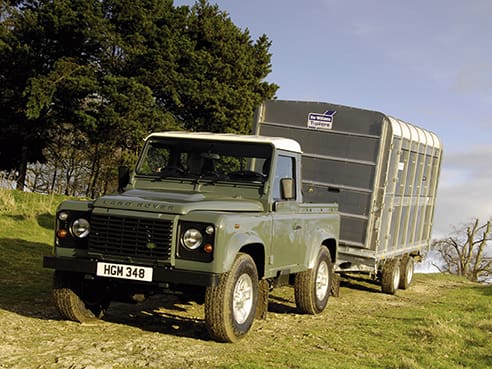
Dear Doctor,
It seems that we are now in exciting, but dangerous times. The speed with which the motoring scene is changing is often hard to keep up with, particularly if you are a veteran driver brought up with the worst of the British motor industry’s post-WW2 products. These were mainly revived pre-war models, with engines made in factories built in the 1920s and 1930s, and put together by untrained labour in factories that had been producing tanks and munitions. You had to be either fairly rich or a real practical motorist in those days, and I can well remember my father spending all day preparing our old Ford Model Y, then a Morris Eight Series E, and finally an Austin A40 Devon, for our annual holiday, usually in Cornwall, which was an all-day 315 mile trip from Hertfordshire. On one of such occasions, Dad over-tightened the Ford’s sump plug, and loosened the brazing with which the threaded insert was attached to the sump case. I think we took a gallon or two of oil with us, and topped up frequently but, by the time we got to Chard in Somerset, the loss of hot oil had become unacceptable. The car was booked into a Ford agent, we spent the night in a cheap B&B, and then set off late the next morning, after the sump and drain plug had been sorted. Not quite the sort of thing that happens on today’s roads, and yet surely the sort of motor repairs that are necessarily still undertaken in less civilised parts of the world. The only way that I can enjoy similar pleasures and challenges or relatively simple maintenance and servicing now is when I am working on my primitive ride-on mower, a machine that is pleasantly free of any clever electronics or advanced technology.
No wonder then that in distant Africa and Asia they still love such relatively primitive machinery as the real Land Rovers before the Defender. It seems remarkable that only the efforts of millionaire Jim Radcliffe, owner of the oil giant Ineos, are likely to see anything like the Defender remain in production in Britain, which once exported such machinery all over its Empire, and the world. (Read about this at ineos.com/businesses/ineos-automotive/) But, I’m asking myself, can such a machine be clean enough, at a sensible cost, to meet current emissions regulations? Does a ìcleanî (diesel) engine have to be laden with emissions control systems ñ EGR, catalyst boxes, DPF units, and NOx removal systems, when such controls are really pretty irrelevant to a Welsh sheep farmer, a Hungarian goat herder, or a Spanish olive producer? Surely it ought to be possible to create a sub-class of rugged all-purpose vehicles that could be excluded from cities and large urban centres, and therefore the tightest emissions limits? What’s the necessity for such extreme pollution controls when you’re far from the densely populated cities, when it’s quite obvious that they aren’t a major source of pollution, and what emissions they produce are easily, and quickly, dispersed?
Old Land-Rovers and the like are going to be excluded from the cities with recent and forthcoming legislation, but there’s really no cause for them to go there anyway, and no real reason in overall environmental terms why vehicles like the Defender (before it became trendy) should have been driven out of existence. What do you say Doc?
Charles Meek
I could barely agree with you more Charles, and I think you present a really viable case for some special provisions and exemptions for the sort of vehicles you are considering.
I find it hard to believe that true off-road vehicles like tractors and construction machinery are being as effectively emissions regulated to the extreme levels now being applied to road vehicles. They don’t get tested regularly for a start, if they are not registered for public roads. To be honest, I have always been rather offended by the way some agricultural and off-road construction and earth-moving vehicles are allowed limited tax-free use on public roads, which seems unjustifiable. My wife has also suffered extreme stress at the hands of tractors with blinding non-road-legal headlights set up for night ploughing, so I’m really not over sympathetic towards the agricultural fraternity. But they, and others like gamekeepers, countryside rangers and similar country folk do surely deserve some flexibility with emissions outside urban areas. History has proved that Land Rovers can offer a 30-year service life, such is their ruggedness and ease of maintenance and repair, and this alone justifies concessions with regards to emissions, as those generated in their construction are written off over a much longer period than normal road cars.
All this has got me thinking about quad bikes and tricycles, which can be licensed and insured for the road, and are subject to type approval, MoT testing, and all such things, but, I discover, and this is official, ìall tricycles and quad cycles are exempt from emissions testing.î Now that really has got me thinking!
Doc Diesel
© Motorworld Media 2023
Registered Office: 4 Capricorn Centre, Cranes Farm Road, Basildon, Essex. SS14 3JJ
Company Number: 8818356
Website designed by Steve Dawson